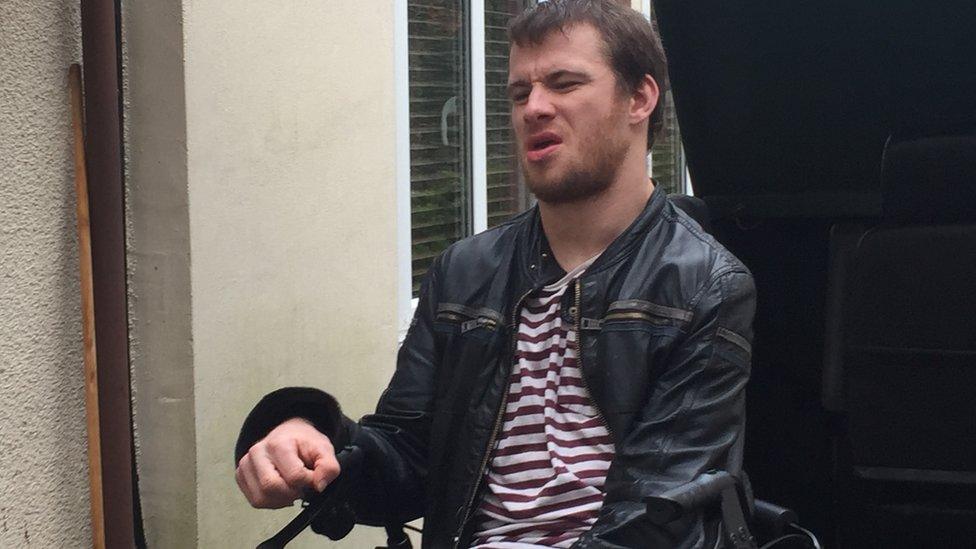School disability access: 'Welsh Government must do more'
- Published
- comments
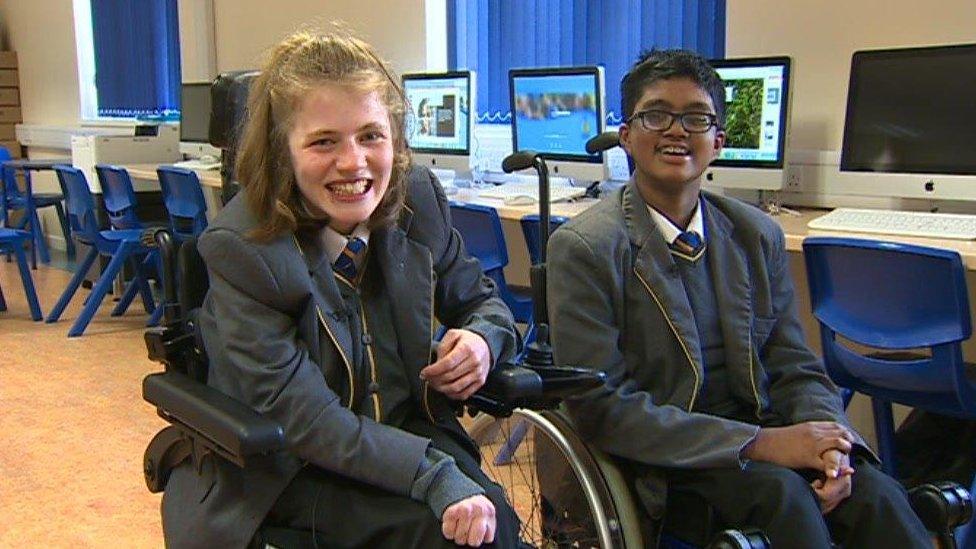
Wheelchair users Immy and Zabed are happy at Whitchurch High, partly thanks to lifts, ramps and "no bumpy concrete"
Immy did not go to high school with her primary school friends because she did not feel it had the wheelchair access she needed.
Her experience is one cited by the Children's Commissioner Sally Holland, who said more must be done to help schools meet disabled children's needs.
In her latest report, she called on the Welsh Government to refresh its "out of date" 2004 guidance.
It said it would work to make sure disabled pupils were fully supported.
Immy, who is now aged 12, said more support was needed for young disabled pupils starting secondary school.
"There is quite often a gap in support when you go up to secondary school. The secondary school I looked at initially, I couldn't go to because it wasn't accessible or suitable for me," she said.
"That meant I couldn't go to secondary school with all of my friends."
She now attends Cardiff's Whitchurch High School which has made several adjustments in recent years, including installing lifts and ramps and the raising of school yards to enable access to classrooms.
"Even though we all have different needs, it's good to see other wheelchair users in my school as well," added Immy.
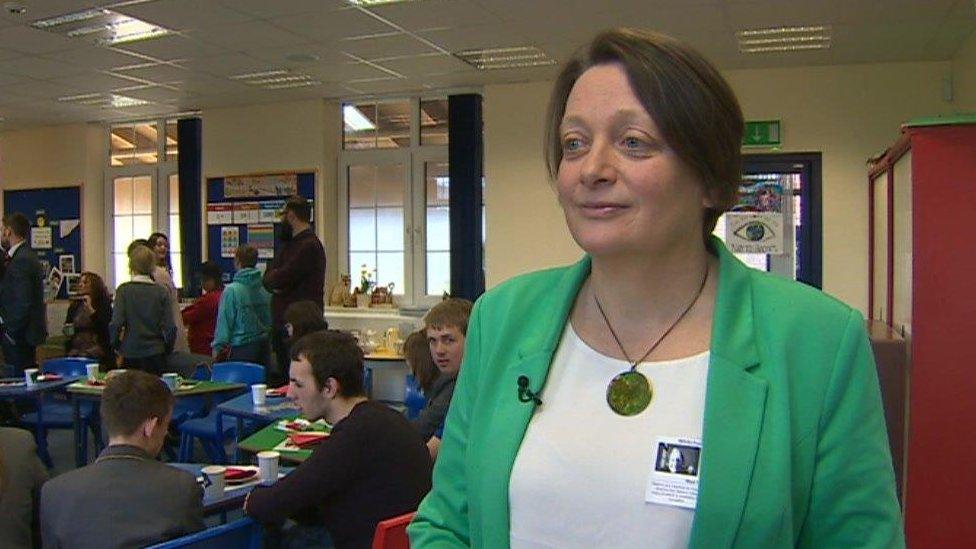
Prof Sally Holland said more should be done to ensure pupils' needs are met
Prof Holland's report into disabled pupil access is a follow-up to a review published by her predecessor Keith Towler in 2014.
At the time, the Welsh Government committed to publishing new guidance by May 2017, but it is still yet to do so.
Prof Holland said councils and the Welsh Government needed to play a more proactive role to assist more pupils with disabilities to attend the school of their choice, along with their friends.
She said: "The needs of disabled children are much more than ramps and rails - there are often issues that will be unique to individuals that can only be understood through dialogue with young people and their parents."
The report also found:
There is an over-reliance on individual schools to plan for the needs of pupils with physical disabilities
Only one of Wales' 22 councils sought the views of young people when drafting their accessibility strategy - a document that sets out how they will improve disabled pupils' experiences in schools
All local authorities and schools in Wales should prioritise listening to children and young people's experiences
Four out of 22 councils did not have their strategies in place even though they are required to do so by law
Only two councils published their accessibility strategy on their websites meaning the document was often inaccessible
The Welsh Government said it had developed revised guidance which would be available by the end of March.
A spokesman said: "The guidance stresses the importance of considering the needs of disabled pupils and also consulting widely with pupils, parents/carers and education staff when forming an accessibility strategy.
"We will continue to work with the children's commissioner over the coming months to make sure that the guidance is fully supporting pupils with disabilities."
The Welsh Local Government Association has been asked to comment.
- Published18 November 2014
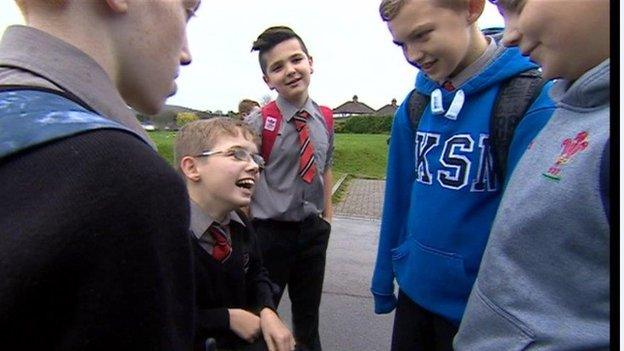
- Published13 January 2018
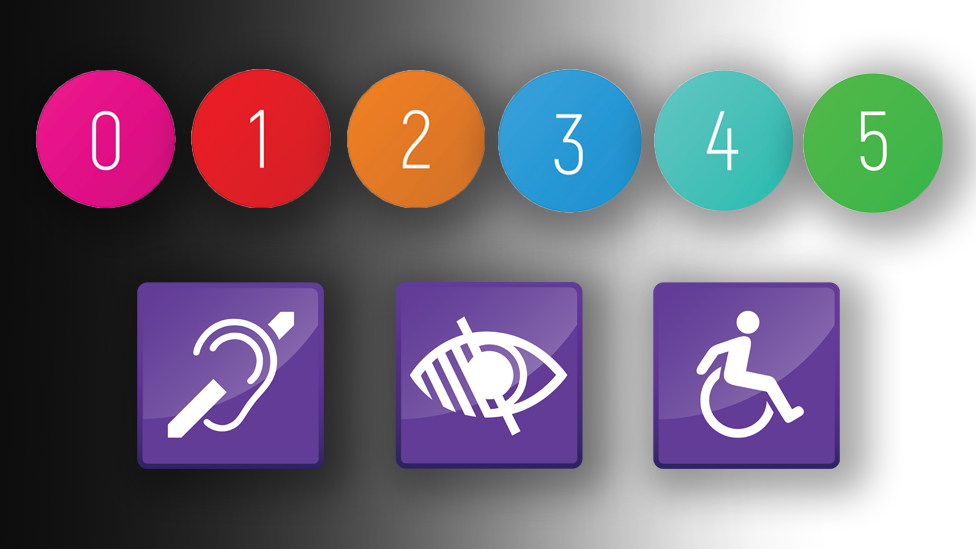
- Published2 January 2018
